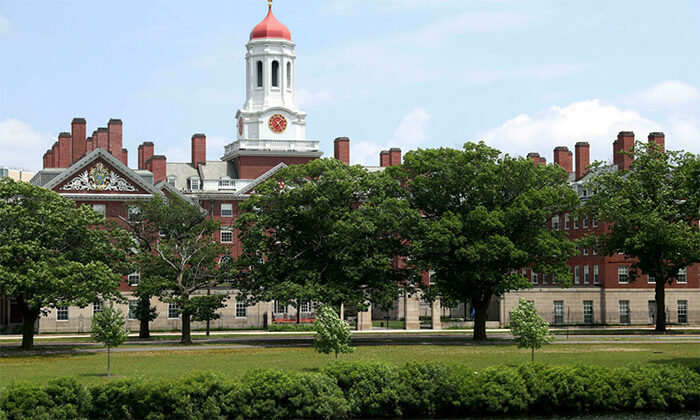
A view of the campus of Harvard University on July 8, 2020 in Cambridge, Massachusetts Maddie Meyer GETTY IMAGES NORTH AMERICA/AFP
By Agencies
Harvard University, which was founded almost 400 years ago to instruct clergymen early in the colonial period, has a new chief chaplain — and he doesn’t believe in God.
Greg Epstein, 44, took up the role this week, becoming the first atheist elected president of Harvard’s organization of chaplains.
“I’m obliged and honored,” he wrote on Twitter.
Epstein has been Harvard’s humanist chaplain since 2005 and is the author of the bestselling book “Good Without God: What a Billion Nonreligious People Do Believe.”
The university’s Lutheran chaplain, Rev. Kathleen Reed, said Epstein was “the first choice” of a diverse committee consisting of individuals from a variety of faiths.
He will lead a group of more than 40 chaplains who represent some twenty different religions and beliefs including Christianity, Judaism, Hinduism and Buddhism.
His appointment comes as young people in the United States increasingly identify as spiritual but without a religious affiliation. A Harvard Crimson survey of the class of 2019 found that more than 16 percent identify as atheists and slightly more than 21 percent as agnostic.
“There is a rising group of people who no longer identify with any religious tradition but still experience a real need for conversation and support around what it means to be a good human and live an ethical life,” Epstein told The New York Times.
“We don’t look to a god for answers. We are each other’s answers,” he added.
Epstein did not immediately respond to request for comment from AFP.
A 2019 Pew Research Center study found that the United States remains a predominantly Christian country, with 43 percent identifying as Protestant and 20 percent as Catholic.
But more than a quarter of those surveyed (26 per cent) described their religious identity as atheist, agnostic or “nothing in particular,” up from 17 percent in 2009.
Epstein, born into a Jewish family in New York, has also been the humanist chaplain at the Massachusetts Institute of Technology (MIT), another major university in the Boston area, since 2018.
Responding to this “controversial” appointment, celebrated apologist, radio host, and author Dr. Michael Brown, urged that if someone “wants to try and be good without God”, that is their choice however, “Just don’t call that person a rabbi or a chaplain,” he said.
“It’s one thing if Harvard said, “Rabbi Epstein does a great job of bringing people of different religions together.” Terrific. Then hire him as an administrative coordinator for the chaplain’s department. But don’t hire him as your chief chaplain. To do so only heaps further scorn on Harvard’s wokeness,” Dr. Michael Brown said in an Op-ed.
“To be a chaplain, by definition, means to be a religious leader, not simply a department head or an administrator or someone who believes in ethical living. And so, to appoint an atheist to be chief university chaplain is like appointing a Christian evangelist to head up the university’s atheist club. Or a devout Muslim to head up the university’s Judaism club. It is a total contradiction in both purpose and logic,” he said.
Charlotte Nickerson, a 20-year-old electrical engineering student, told the Times that Epstein’s leadership “isn’t about theology.”
“It’s about cooperation between people of different faiths and bringing together people who wouldn’t normally consider themselves religious,” Nickerson said.

